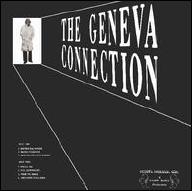Signed to Motown's Jazz Workshop label, he recorded the albums Detroit Jazz and The Right Side of Lefty Edwards. When the march of the Motown hits began, Griffith started playing on sessions for their R&B/pop acts. But rather than sign a work-for-hire contract with Motown like other musicians, Griffith remained a freelancer, doing other dates and sessions in New York and nearby Chicago.
The Motown hits that Griffith played on include: Marvin Gaye's How Sweet It Is (To Be Loved By You) (number four R&B, number six pop, early 1965), his celeste trills are heard on Mercy Mercy Me (The Ecology) (number one R&B for two weeks, number four pop, summer 1971), adding Wurlitzer electric piano on both Gaye's I Heard It Through the Grapevine (number one R&B/pop for seven weeks, late 1968) and the Temptations' Ain't Too Proud to Beg (number one R&B for eight weeks, summer 1966), organ on the Supremes' Stop in the Name of Love (number two R&B for four weeks, number one pop for two weeks, early 1965), and organ and shotgun effects on Junior Walker and the All Stars' Shotgun (number one R&B for four weeks, number four pop, early 1965).
Griffith's non-Motown hits are Edwin Starr's Agent Double-O Soul (number eight R&B), Cool Jerk by the Capitols (number two R&B, number seven pop), Jackie Wilson's (Your Love Keeps Lifting Me) Higher and Higher (number one R&B, number six pop) for Chicago soul producer Carl Davis, the Artistics' I'm Really Gonna Miss You (number nine R&B), the Chi-Lites' Have You Seen Her (number one R&B for two weeks, number three pop), and Young-Holt Unlimited's Soulful Strut (number three R&B, number three pop). Griffith had his own hit for RCA Records with Johnny Griffith, Inc.'s Grand Central Shuffle in early 1973. In the '90s, Griffith was still active on the Detroit club scene. ~ Ed Hogan, Rovi













